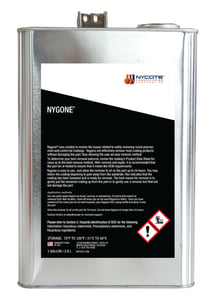What’s new in the industry?
Antimicrobial everything! We’re seeing the terms “antimicrobial,” pop up all over the aerospace industry as we enter our new post-COVID reality. Is it just a buzzword? No! We all want to know that airlines are doing everything they can to protect us, the commuters, and now antimicrobial solutions have become a part of that. Let’s unpack the term.
“Antimicrobial” is defined by Merriam-Webster as “destroying or inhibiting the growth of microorganisms and especially pathogenic microorganisms.” Unfortunately, this definition can create some confusion when it’s used for marketing purposes.
Most consumers assume that it means it kills pathogens, and it could mean that, but it doesn’t always. It could just mean that it inhibits the growth of pathogens, but the pathogens are still alive and able to cause infection.
So, you might be thinking “okay noted; I’ll be sure to look for ‘antibacterial’ then instead of ‘antimicrobial,’” but not so fast. Antibacterial is simply defined as “directed or effective against bacteria,” (again Merriam-Webster) and doesn’t actually mean that it kills bacteria. Just like “antimicrobial,” it may only inhibit the bacteria’s growth.
The most literal term for a substance that kills pathogens and bacteria is bactericidal (def. = destroying bacteria), and most products labeled “antimicrobial,” or even “antibacterial,” aren’t bactericidal but merely bacteriostatic, which is defined as “an agent that causes bacteriostasis,” bacteriostasis being the “inhibition of the growth of bacteria without destruction." There is also biocide meaning a substance that destroys or inhibits the growth or activity of living organisms, but again this is an either/or definition.
Why is this important?
We’re seeing advertisements for “new antimicrobial technologies” and the term is indefinite. Not all of these will be safe for humans (remember we used to use lead for its antimicrobial properties) and not all of these new offerings will be effective. Being under-educated could lull us all into a false sense of security where our actions aren’t as cautious, and we inadvertently spread more pathogens, which none of us wants.
What is Nycote doing about antimicrobial solutions?
You might be wondering where Nycote® falls in this jumble of terms. The short answer is: Nycote is antimicrobial. Since long before the rise of COVID-19 we’ve known that Nycote coatings were effective at inhibiting growth of certain bacteria, fungi, and pathogens.
The important thing to know is that our cured coating is completely non-hazardous to human health. And this means it is an optimal antimicrobial coating for a variety of high-touch surfaces including plastics, metals, and fabrics (among others).
What can you do?
Work with us! We have a long history of working directly with OEM’s to provide them with custom coatings solutions and we thrive in our partnerships. One of the best ways we can serve our customers across industries is to come alongside you and work with your engineering team to understand your needs and create new and/or customized solutions. For a technical advisor contact sales@nycote.com
New Nycote Coating Innovations
Printed Circuit Boards (PCBs) is another area Nycote is working to provide solutions for. Why? Many PCB coatings have one detriment or another.
Silicone Resin (SR) coatings for example carry the detriment of being extremely difficult to remove, requiring specialized solvents for PCB rework.
Parylene coatings similarly require specialized solvents or micro abrasion to remove effectively but at the risk of damaging sensitive materials underneath the coating. Parylene C also requires a chemical vapor deposition application method that most PCB houses outsource and, while fairly consistent, can also sometimes have issues such as moisture diffusion and surface pinholes, corrosion, cracking, delamination, and outgassing.
 Nycote offers an alternative to these coatings in our highly cross-linked nylon epoxy-polymer coatings as they are completely non-hazardous to human health once cured, strong like a resin, flexible like a polymer, and provide excellent corrosion resistance as a pin-hole free conformal coating.
Nycote offers an alternative to these coatings in our highly cross-linked nylon epoxy-polymer coatings as they are completely non-hazardous to human health once cured, strong like a resin, flexible like a polymer, and provide excellent corrosion resistance as a pin-hole free conformal coating.
Additionally, Nycote can be applied a multitude of ways including spray application, brush and roller application, small detail covering (Nycotek™ pen applicators) or even dipping. Additionally, Nycote’s NyGone® remover allows for easy removal and reapplication which should make for easier PCB rework. We’re excited to continue exploring this application with industry partners and we welcome new partners as well!
Nycote is also investing in researching applications in the Unmanned Aerial Vehicle (UAV) and electric propulsion markets for electric bonding and corrosion/moisture resistance. We are seeking industry partners to send samples of Nycote 7-11® and Nycote 99 Ecoshield® to test in this space. Early feedback has been very positive.
Lastly our team here at Nycote has been working together to identify needs around the community and organizing donations of our Nycote Sanisafe hand sanitizers to Henry Mayo hospital and other local essential operations. Just a reminder we do have our FDA approved Sanisafe available for purchase both in liquid and gel forms to keep your team safe as we all return to our work sites and adapt to the “new normal”.
Contact sales@nycote.com for additional details about Sanisafe.